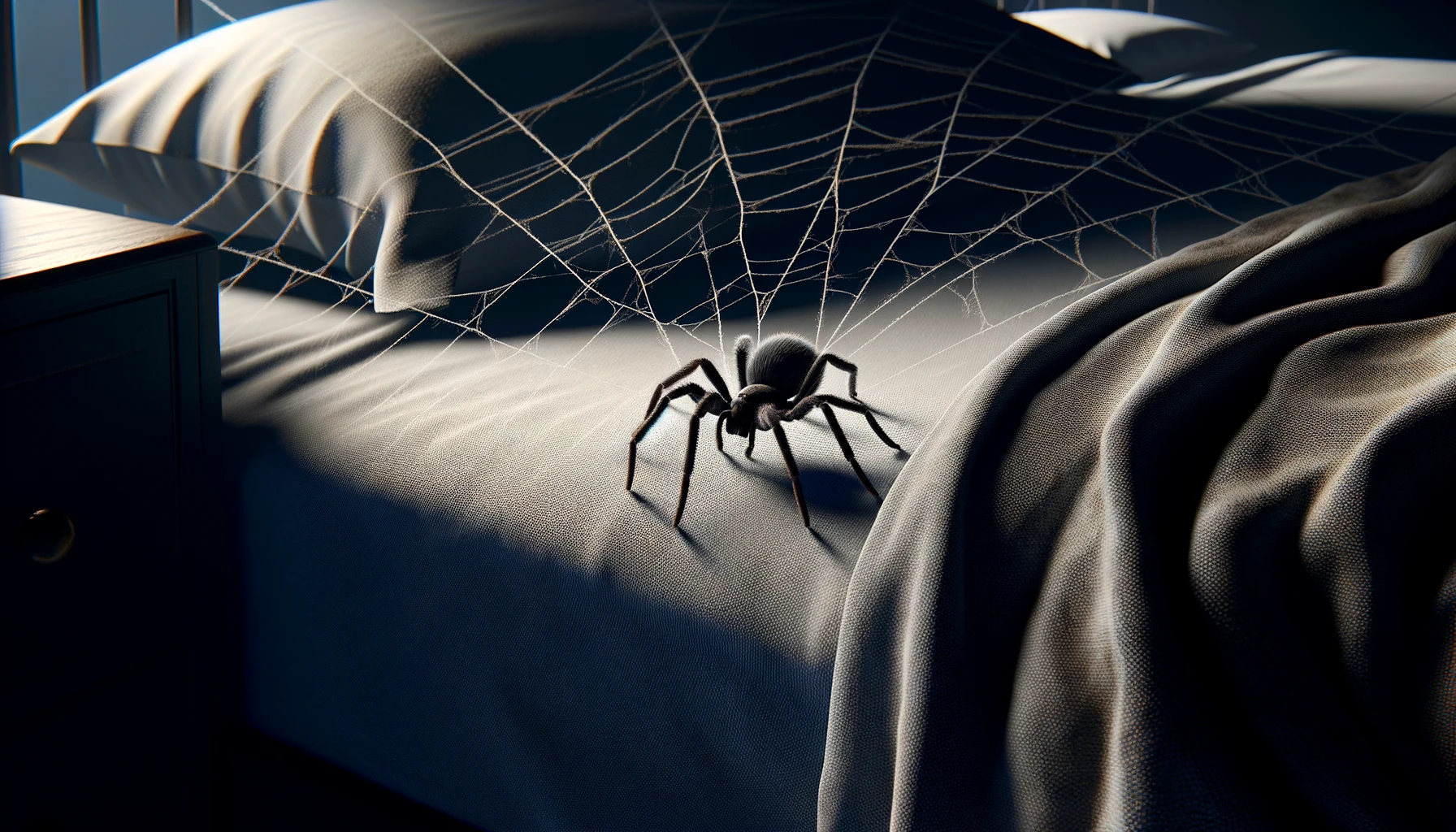
1, Mar 2024
Do Black House Spiders Climb into Beds?
The concept of spiders crawling into our beds is enough to make many people nervous. In particular, black house spiders’ velvety, dark look frequently raises concerns about their activities and the safety of our beds against their investigations. With support from both scientific findings and professional perspectives, this article explores the activities of black house spiders in order to determine the probability that they may climb into beds.
Key Takeaways
- Black house spiders prefer secluded and less disturbed areas rather than human beds.
- Instances of these spiders in beds are rare and usually accidental.
- Preventive measures can significantly reduce the chances of any spider entering your sleeping area.
(TOC)
- Introduction
- Understanding Black House Spiders
- Habitat and Behavior
- Diet and Prey
- Do They Climb into Beds?
- Preventive Measures
- Relevant Resources
Understanding Black House Spiders
Habitat and Behavior
Black house spiders (Badumna insignis) are known for their preference for dark and secluded spaces. Typically found in the crevices of window frames, under eaves, and within unused corners of buildings, they weave sticky, tangled webs to capture their prey.
- Natural habitat: They thrive in outdoor environments but can adapt to indoor spaces if conditions are favorable.
- Interaction with humans: Rarely aggressive to humans and tend to avoid high-activity areas.
Diet and Prey
Primarily, black house spiders feast on a variety of insects, including flies, mosquitoes, and other small bugs. Their presence can inadvertently aid in controlling pest populations within homes.
- Predatory behavior: They show that they have less need to go far from their established areas by using their webs to catch prey.
Do They Climb into Beds?
The idea of black house spiders venturing into human beds is a concern grounded more in fear than in fact. Given their preferred habitats and feeding habits, these spiders have little reason to climb into beds intentionally.
- Accidental encounters: On the rare occasion a spider is found in a bed, it is typically accidental, perhaps in pursuit of prey or if disturbed.
Preventive Measures
Implementing a few simple strategies can greatly minimize the likelihood of encountering black house spiders in your bed:
- Maintain cleanliness: Regular cleaning and decluttering reduce hiding spots for spiders and their prey.
- Seal openings: Ensuring windows, doors, and walls are sealed can prevent spiders from entering.
- Control outdoor lighting: Minimizing lights that attract insects can indirectly reduce spider attraction to your home.
Further Preventive Measures
Beyond the initial steps outlined previously, there are additional strategies that can further deter black house spiders from entering your sleeping area:
Minimize Attractants
- Reduce clutter: Clutter provides hiding spots for spiders and their prey. Keeping your living space tidy can discourage spiders from settling in.
- Use essential oils: Certain essential oils, like peppermint, are believed to repel spiders. Applying these around potential entry points can act as a deterrent.
Professional Pest Control
- Regular inspections: Having a professional pest control service inspect your home can help identify and seal potential entry points for spiders.
- Targeted treatments: Professional exterminators can provide treatments that specifically target spiders, reducing their population around your home.
Frequently Asked Questions
Do black house spiders pose a danger to humans?
- Generally harmless: Black house spiders are not considered dangerous to humans. Their bites are rare and typically result in no more than mild, localized pain.
Can black house spiders be beneficial?
- Natural pest control: By preying on insects, black house spiders can help control pest populations in your home, serving as a form of natural pest control.
How can I safely remove a black house spider from my home?
- Capture and release: Using a glass jar and a piece of paper, you can safely capture and release the spider outside, away from your home.
What are the signs of a black house spider infestation?
- Webbing: An increase in webbing around your home, especially in dark, undisturbed areas, might indicate the presence of black house spiders.
- 0
- By Faizan Khan






